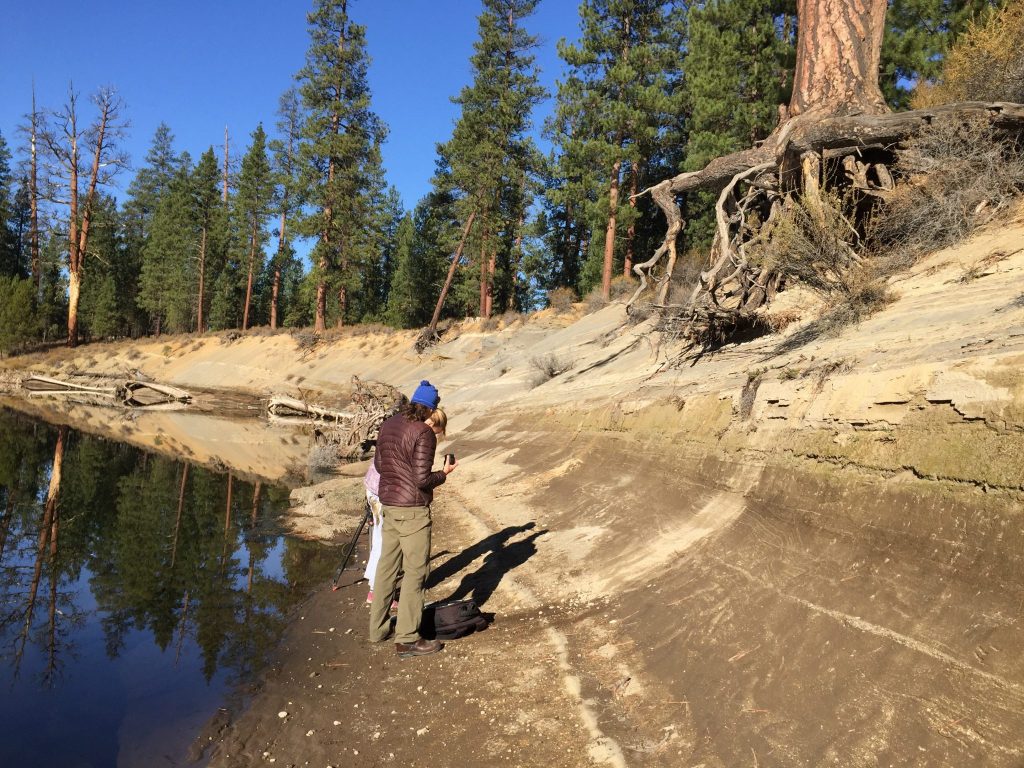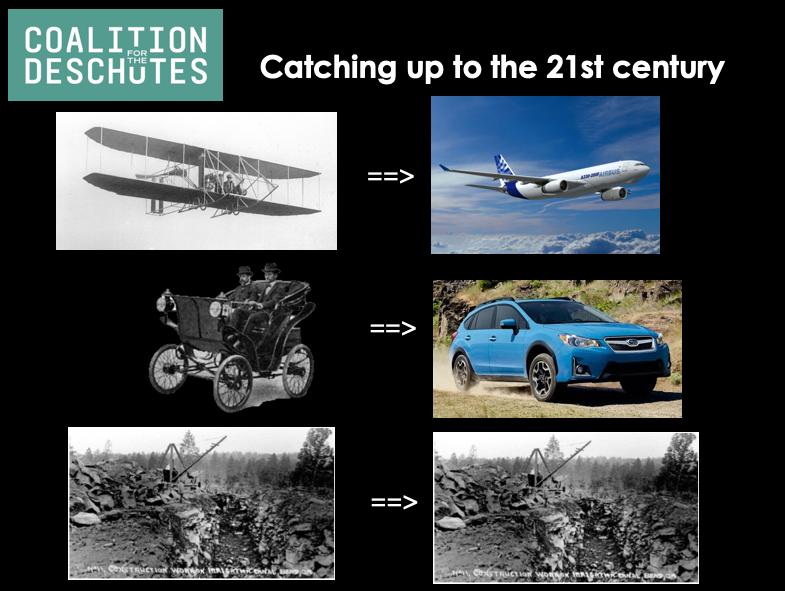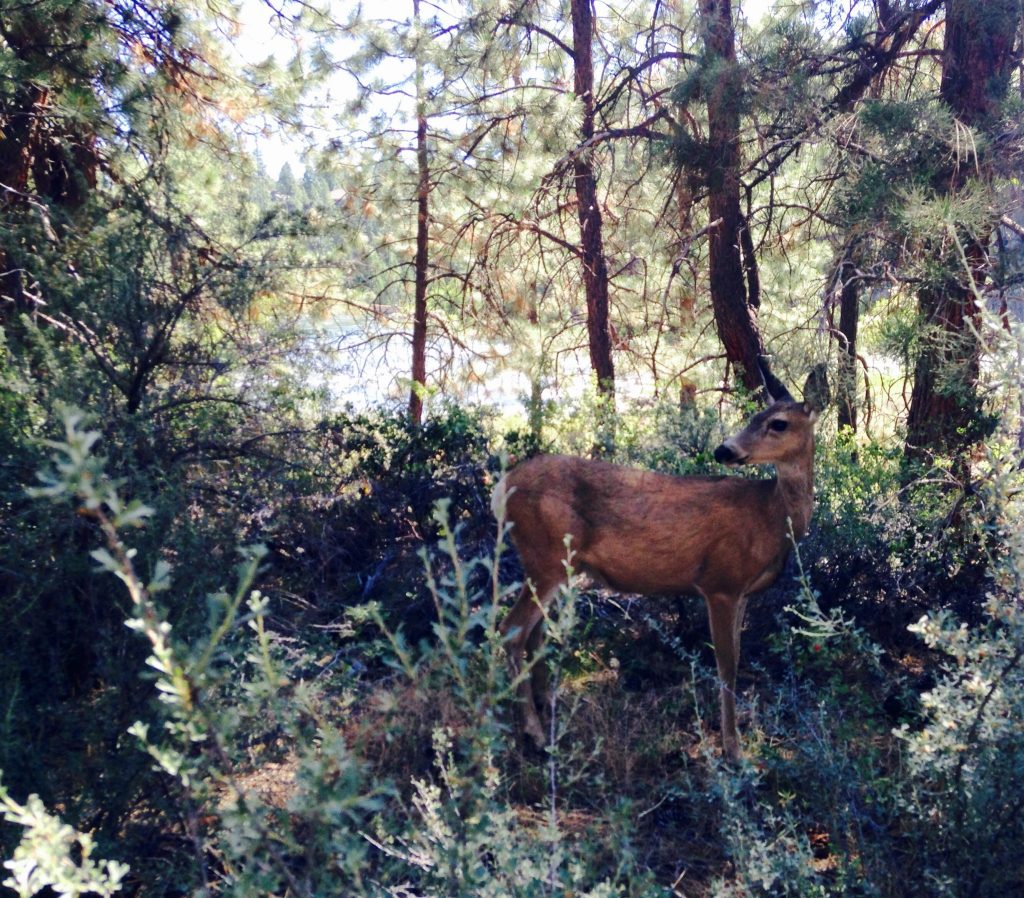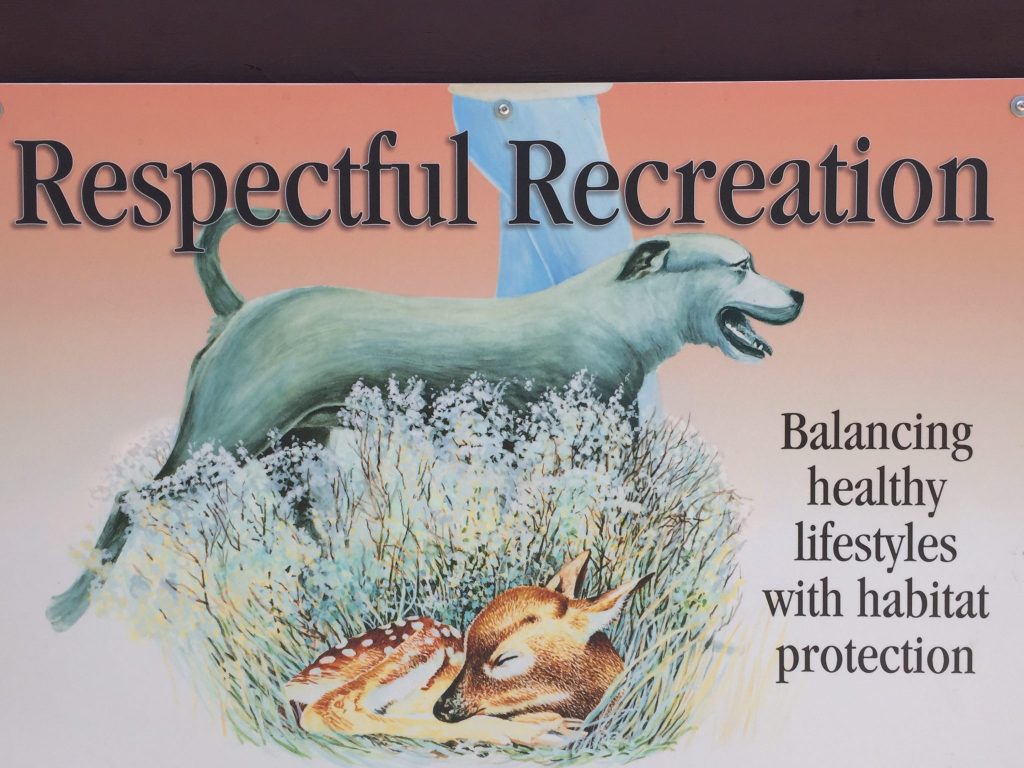Fish - altered flows impact the river channel and ecology
- Altered flows and their impacts
- Impacts to fish and wildlife
- Invasive species
- Plants
- Animals
- Annual fish salvage

Channel erosion near Bull Bend, ~ 6 river miles downstream from Wickiup Reservoir.
Photo by Gail Snyder
Farms - Irrigation and Agriculture in Central Oregon
- Irrigation modernization
- Watershed Plans
- On-farm conservation - read about one family farm's commitment to water conservation
- Market Tools

We believe that in order to meet the needs of the river, agriculture, and our communities, we must use all of the water conservation tools available to us. These include large-scale piping, on-farm efficiency and private-ditch piping, and water market strategies, as detailed in the Upper Deschutes Basin Study. Piping leaky canals is crucial to the successful implementation of the other tools.
The benefits of these infrastructure modernization projects are significant, multi-beneficial, and long lasting. The benefits include:
- restored stream flows for fish and wildlife
- improved water quality in our streams and rivers
- improved on-farm water deliveries and efficiencies
- elimination of millions of kilowatt hours by replacing irrigation pumps with gravity pressurized irrigation systems
- economic catalyst providing hundreds of local construction-related jobs
Families - Recreation, Cities, Other
- Municipal water - the water we drink, use in our homes, and in our garden
- Recreation on and along the river
Why We Care
A Place To Call Home - Mule Deer
According to nature writer LeeAnn Kriegh, deer are everywhere, both in our imagination and real lives. In her book, Nature of Bend, LeeAnn writes:
"In a world that’s becoming less and less wild, deer stand tall as the biggest, wildest creature many of us will ever encounter. They’re the most common large mammal left in the wild, and every Central Oregon community now has a resident (non-migrating) population. Common as they are, mule deer populations in our area are dropping below ODFW’s targets–as poachers kill as many deer as hunters, and many others die of disease, predation, and car strikes.
"Like elk and other wildlife, deer are also losing critical habitat as we expand our communities, roads, and trails into their winter grazing areas. In fact, pretty much all of Bend was once their valuable winter habitat. It’s no wonder deer act as though our backyards are theirs–up until recently, they were."

Mule deer in Riverbend Park. Photo by Gail Snyder
Frankly mule deer, we do give a damn...
"Wildlife dispersal and travel will be facilitated by the arrangement and connectivity of suitable habitat." Upper Deschutes Wild and Scenic River Comprehensive Management Plan, p. 33.
Wildlife underpasses help deer and other wildlife get to the other side safely. Shared Vision partners, Protect Animal Migration and Oregon Hunters Association, are working on this critical issue. Deer cross the river as well as the roads we use to reach our recreation destinations. They and other wildlife also need a home, so please think about the wildlife when you're out enjoying the river and trails. Remember you are sharing this area with wildlife.

Sign at the Rimrock area, aka Good Dog. Photo by Gail Snyder
Learn more about these core issues and the incredible habitat that surrounds the Deschutes River.